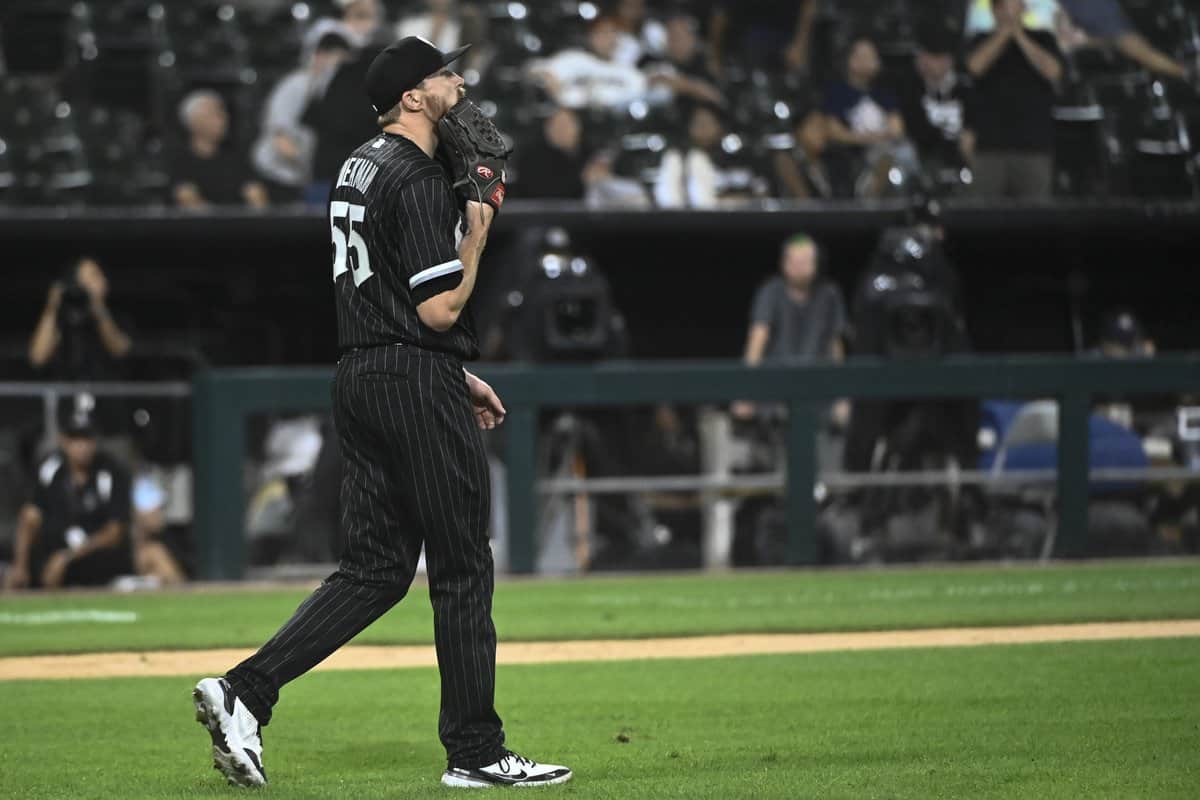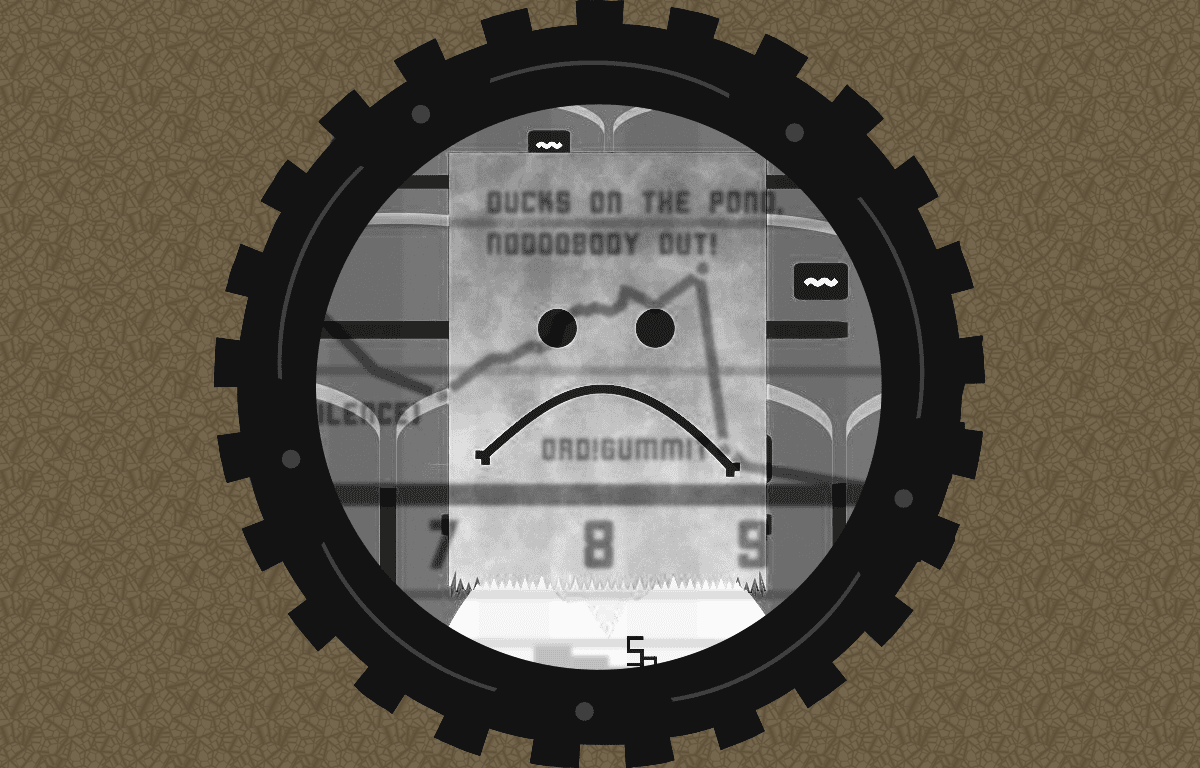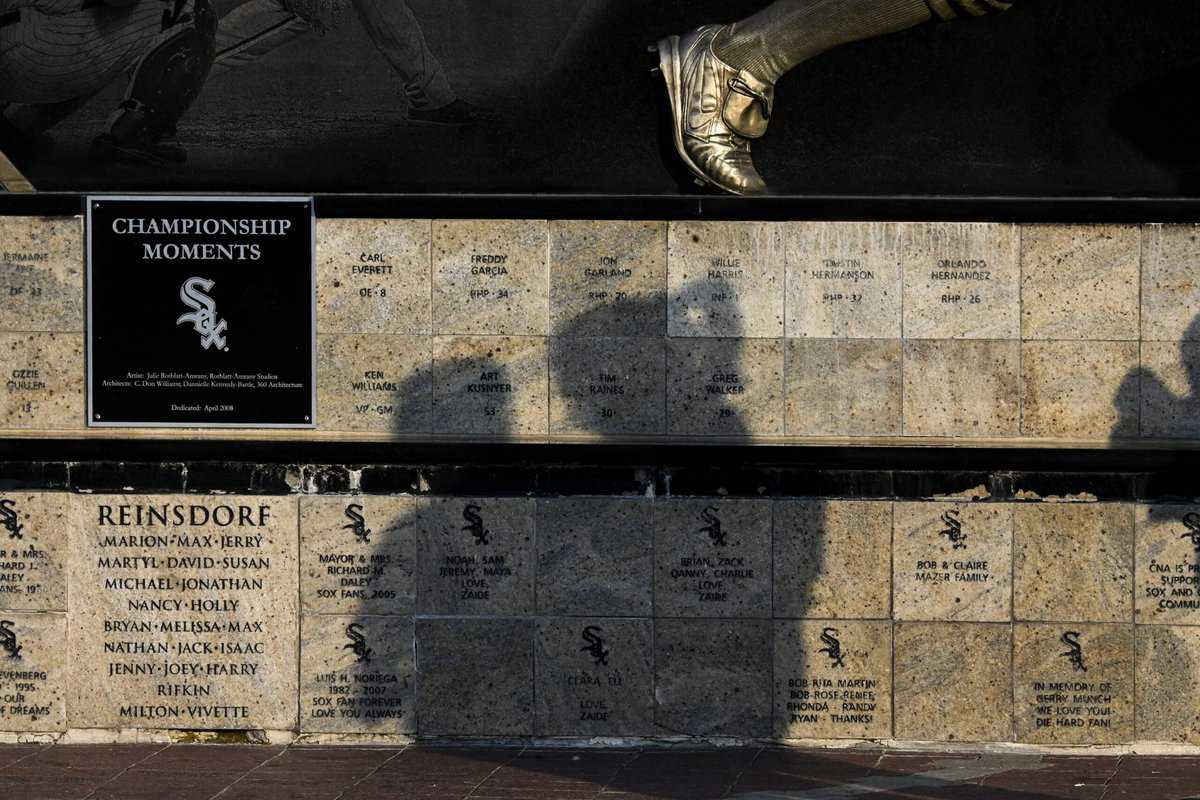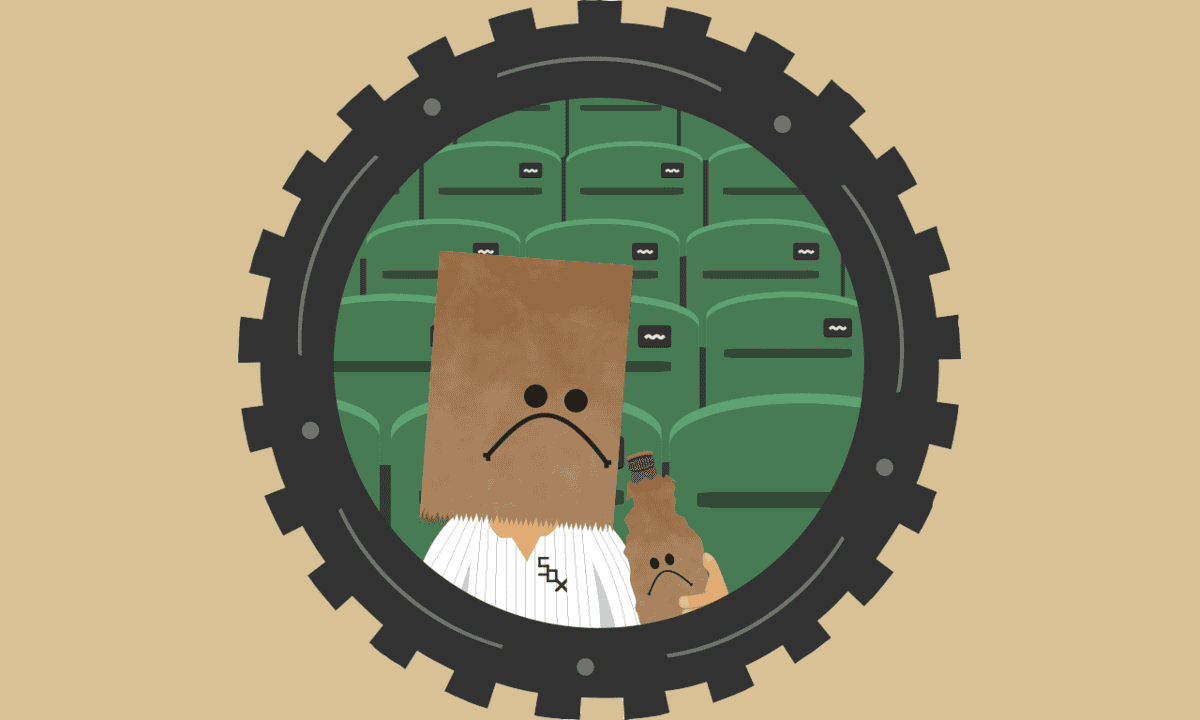Miguel Cairo fell on his sword after Tuesday’s season-shortening loss to the Cleveland Guardians, and he indeed made his share of mistakes. He underestimated the pressure that Jimmy Lambert experienced in a seventh inning that seemed better suited for Reynaldo López. He'd also made a habit of replacing Andrew Vaughn before his spot in the lineup was through. Tuesday marked the fourth time that Adam Engel hit for himself after entering as a defensive replacement, but it was the first time it ended up mattering.
Then there’s his management of Liam Hendriks.
On the surface, there’s nothing wrong with it. Hendriks pitched the ninth inning of a tie game at home and did so perfectly.
The problem is that Hendriks only pitched one inning. Cairo then gave the ball to Kendall Graveman, who is far more susceptible to contact hard and soft, and sure enough, the Guardians struck for two runs over the course of just eight pitches. After Graveman’s inning, Jake Diekman was the closest thing to a logical choice, and Rick Hahn’s only addition at the trade deadline melted down mostly because the Guardians noticed the multitude of things he was doing wrong.
Alas, the conservative usage of Hendriks isn’t a Cairo-specific problem. He was merely following the lead set by Tony La Russa, and maybe the White Sox organization as a whole.
With two weeks left in the season, Hendriks has thrown only 53⅔ innings. He’s being used like a normal closer, and he wasn’t supposed to be one of those.
Hendriks threw 85 innings during his last full season with Oakland in 2019. In the 2020 postseason, Hendriks threw 49 pitches during a rocky Game 2 of the Wild Card Series against the White Sox, then came back the next day and struck out the side to seal the series. In Game 3 of the ALDS, Hendriks recorded a three-inning save to preserve a 9-7 victory and keep Oakland’s season alive.
Basically, every time Bob Melvin needed to get a crucial game across the finish line, he put the fate of the game in Hendriks’ hands no matter the unusual lengths, and nobody was worse for the wear.
That was the argument for making a guy like Hendriks the only major free agent investment of the last two years. I hated that the White Sox put the bulk of their eggs in the basket of a guy who only factors into games where everybody else must build the lead, but I could’ve maybe been swayed if the White Sox were willing to expand the types of games a pitcher of Hendriks’ caliber could affect.
Well, in a must-win game, with Hendriks having two days’ rest and appearances in only seven of September’s first 19 days, he threw one inning and 15 pitches, and then the White Sox manager went on to worse options in tougher situations, and failure ensued.
Hendriks isn’t the biggest problem with the White Sox. Individually, he’s not a problem at all. Every team would be happy to have him, and most would be fine paying him the money he’s making.
However, Hendriks best represents the loss-averse approach that plagues a team that hasn’t won anything. Between the drafting of Garrett Crochet in 2020 to trading for Diekman at the most recent deadline, Rick Hahn’s biggest moves over the last five acquisition periods have prioritized a jealous guarding of leads, ignoring the question of whether the Sox would have enough leads to guard in the first place. Now they’re baseball’s worst second-place team at the moment this whole rebuild project was supposed to be peaking.
There’s a fair amount of talent still on hand, but the forecast feels bleak because the White Sox have shown zero imagination and initiative, and there are few signs of leadership that might turn things around. Tony La Russa was washed well before he was deemed physically unable to perform, Hahn’s spent the last month and a half in hiding, and Jerry Reinsdorf only appears through anonymous comments to Bob Nightengale.
Cairo’s status boomed over the last couple weeks simply because five months into the season, the Sox finally had a guy who gave a detectable damn about the piss-poor product, and had the agency to affect who might be contributing to it. Alas, caring only goes so far, because when it came time to leverage the White Sox’s lone strength, Cairo stopped short.
It’s hard to hold any such shortcoming against Cairo because his first meaningful experience in the position is coming behind the eight ball in a pennant race, and he’s done enough by showing the White Sox what could’ve been accomplished with some measure of proactivity. White Sox coaches say Cairo will be a “hot commodity” if La Russa returns or the Sox decide to look elsewhere, and there’s certainly potential.
The catch is that if the Sox stick with Cairo, they’ll be repeating the same terrible process that led to a not-terrible choice in Rick Renteria. Like Cairo, Renteria also cared and wanted the job – two characteristics that should be a given, but weren’t with La Russa, Robin Ventura and late-stage Ozzie Guillen – and that was good enough for a certain period of time. It also reflected the White Sox’s greater stagnation and unwillingness to expand Reinsdorf’s social network, especially when Reinsdorf responded to Renteria’s dismissal by reliving the 1980s, another decade where the White Sox topped out at one postseason win.
I’m keying in on Hendriks partially because I don’t want to do all my eulogizing with two weeks left in the season, and he represents the diminishing returns of the way the White Sox allocated their money. Hahn spent so much time focusing on the edges of the roster that he ignored the rot in the center of it.
Now, Hendriks is on the payroll for the next two years, and at age 34 in 2023, it’s hard to imagine the White Sox expanding his duties. Beyond him, Graveman will be 32, Diekman and Joe Kelly will be 35, and they’re all combining to make $34.5 million. Hahn’s on Year 10 of trying to win a single playoff series, and he’ll be on Year Three of trying to think of a different way to improve the team. If Reinsdorf actually cared about the product, he’d give somebody from outside the organization a Year One to back out of the dead end.
Postscript: Just as I finished editing this, the Kansas City Royals announced the firing of Dayton Moore, giving the Central two teams that stopped accepting the status quo.






